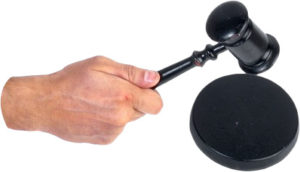One of man’s natural tendencies is to judge others by his own measuring stick; usually himself. Paul, in  Romans 2, strongly addresses this weakness.
Romans 2, strongly addresses this weakness.
“Therefore thou art inexcusable, O man, whosoever thou art that judgest: for wherein thou judgest another, thou condemnest thyself; for thou that judgest doest the same things. 3 And thinkest thou this, O man, that judgest them which do such things, and doest the same, that thou shalt escape the judgment of God?” Romans 2:1
Most of the time when we judge others, we have or have had the same problem ourselves. It seems that those that have had the biggest problems, or are still having them, complain the loudest of another’s weaknesses. It is the ex-smoker that criticizes the loudest about another’s smoke he is inhaling. An older man grumbles to a son about his child’s late hours coming home, forgetting how his father used to rebuke him in his younger, cohorting days. One that recently lied on his income tax form somehow is not convicted, when he judges a worker that just lied to him. On and on our hypocritical judging goes.
God, however, knows the truth, and He remembers (Rom. 3: 3). For the born-again child of God, there is no judgment for sins. All his sins are paid for and no longer remembered (Hebrews 10:17). All Christians, however, will be judged (Mat. 12:36, Gal. 6:7, Eph. 6:8, Col. 3:24 …) for what they did or did not do for the Lord. It is called the Judgment Seat of Christ (II Cor. 5:10), and it will involve reward or loss of rewards (Rev. 22:12).
For the unsaved person, sadly their judgment will be at the White Throne Judgment (Rev. 20:11-15). That fearful condemnation will be at the end of Christ’s 1,000 year reign on this earth. At that judgment, the lost will be judged for their works (Rev. 20:14) and sins.
In light of a Christian’s future day of judgment before an Almighty God who knows everything about us, (including real intents for doing something, what we did when no one else saw us, and all other dark secrets), our judgment of others seems so insignificant and embarrassing, on our part. We certainly want our mistakes and sins over-looked. How can we dare judge others when God has been so merciful and forgiving to those that are saved from the consequences of their forgiven sins. Can we stop judging others, and leave that to the One who knows all?
“Reputation is what man thinks of us. Character is what God knows us to be.”









I wish we could forgive on the same timeline and depth that Jesus forgives us. Don’t you all feel that a lot of our “judgement” is not really that, but is a comment or attitude that is a result of a condemning spirit in us?
I frequently observe what I would call Pharasaism among our people. God help me to see that in myself if it exists.
David
You’re exactly right Bro. Bill! We want others to forgive us when we wrong them, but we don’t want to forgive others when they wrong us!
I’ve heard people say, “You can forgive but not forget” and I tell them, “If you don’t forget or let something go that someone has done to you in the past, then you’re not truly forgiving them!” When Jesus forgives us, He throws our sins in the depths of the sea of forgiveness and REMEMBERS them no more (Isaiah 43:25)!
I wanted your feedback on the devotion in Acts 10 – I’ve heard most of my life in the church that God does not hear the prayers of lost people. He only hears the “sinner’s prayer” and the prayers of His children. Me personally, I have a problem with that.
In Acts 10, Cornelius was lost, yet scripture says that his prayers came up to God as a memorial (Acts 10:4)! That means God heard his prayers even though he was lost! My kids prayed to God when they were little, and I know God heard their prayers even though they were lost (yes, they were under the age of accountability, but they were still lost)!
My point is, I believe God hears the prayers of lost people that sincerely want to know Him! But I’ve been taught (even in Bible College) that God doesn’t hear the prayers of lost people. What do you think Bro. Bill?